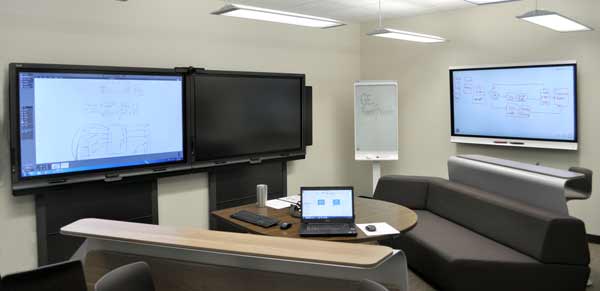The Four Traits of a Successful AV Integrator
There’s plenty to look for in an AV integrator, and you don’t need to be a technical guru to make an accurate assessment. That’s because proper AV integration is much more than the technology. It’s also about how people will interact with that technology, how the technology fits into the client’s mission and what post-installation support will be available to the client. That’s a lot to consider, so here’s what businesses should consider when looking for an AV expert:1. Experience with similar clients – Experience is always a positive for an integrator, but general experience in the industry isn’t enough. Every business is different and every building is different, so relevant experience is key. When assessing an AV integrator, it’s a good idea to inquire about their client history and get some photos of previous projects. Also, ask if any clients are willing to be contacted and follow up with those clients to hear a first-hand account of their experience with the company.
Many AV projects involve buildings that are challenging to deal with. Space, acoustics, infrastructure, existing technology and layout can all add a degree of difficulty to the project, but integrators who have been there and done that know how to account for such difficulties.
Experienced integrators also know what challenges likely await them when working with a particular building, like a corporate office, a restaurant, a church or an educational facility. They can spot these issues before the project gets started and plan for them, ensuring the project stays on time and on budget, and meets the client’s needs.
2. Teamwork – There are many people involved in every AV solution, including sales, system design, system installation and training personnel, along with a project manager to keep everything organized. Every team must work together to keep the project on time and reach the promised performance marks. Teamwork, then, is a characteristic of successful AV integrators, and one that companies should target.
Accomplished integrators place a lot of emphasis on internal communication and camaraderie. Does the integrator you’re considering make these a priority? Or are the integrator’s representatives contradicting each other or behaving in a way that’s awkward to be around? If there appears to be communication issues during the initial planning stages, it’s likely that those issues will persist throughout the project’s execution. That’s not a good thing when it comes to getting the project completed on time.
3. A dedication to the process – You don’t want an integrator that skips steps, even if they promise to expedite the project. Successful AV integrators have established processes designed to result in an effective solution.
There’s a lot of planning that goes into every AV solution. This is the systems engineering part of the process, and it includes things like project plan development, a site survey, technical drawings and engineering specifications. This level of planning is needed to ensure the integrator understands the client’s needs, as well as any challenges they are likely to face during installation. Without this planning, it’s impossible for an integrator to match technology to the client’s needs, and it’s impossible to make a firm estimate regarding time or budget. If something unforeseen comes up during integration, it’s going to set the project back.
Reputable integrators don’t get caught off guard this way. Sure, there will be the occasional piece of technology that isn’t shipped on time, or a small detail will slip through the site survey, but an organized integrator can compensate for hurdles like these.
4. A long-term outlook – Always ask an integrator if they are a vendor or a partner. Vendors select and install equipment, then move on. Partners, though, don’t move on just because the system is up and running. They are willing to enter into an extended relationship with the client, providing ongoing maintenance and monitoring for their new AV solution.
Partnering with an integrator ensures there is always an expert available if the system experiences a technical issue. It also ensures system components are replaced or upgraded when needed.
Building a long-term relationship with an integrator is like building a long-term relationship with the family physician. With time, the family physician gets to know everyone’s health issues, concerns and history, which helps the physician provide better treatment. Likewise, because the integrator knows the company’s mission, personnel and preferences, it can make smart decisions that best serve the client.
Audio and visual integration is a significant undertaking, and it takes an experienced integrator to see it through on time. With the tips listed above, it’s easy to choose a reputable integrator that can be depended on for years to come.


